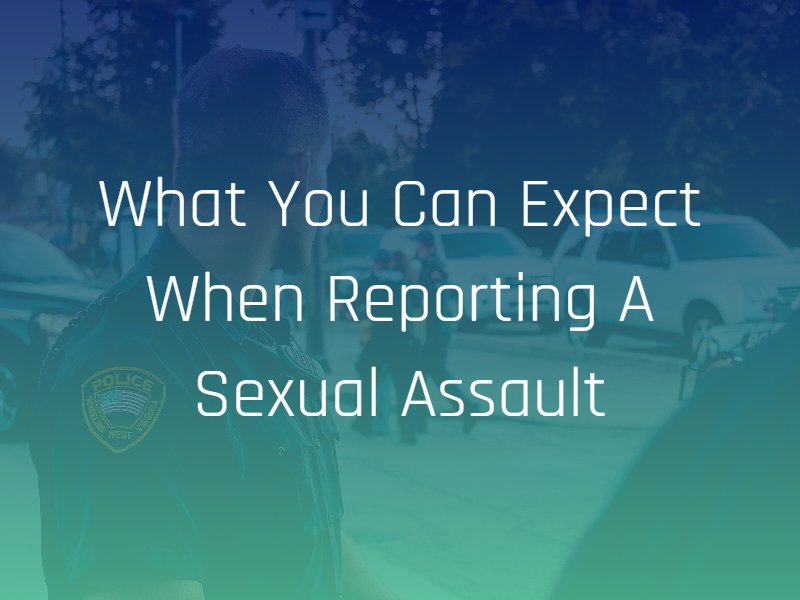After a sexual assault, it can be difficult to know what to do next. Many survivors feel uncomfortable reporting their assaults to the police—according to the Rape, Abuse, and Incest National Network (RAINN), three out of every four sexual assaults go unreported.
It can be a stressful and intimidating experience reporting a sexual assault to law enforcement. However, understanding what to expect when reporting this crime can help demystify the process and help you seek the assistance you need.
Seeking a Forensic Medical Exam
An important step to take after a sexual assault is to seek a forensic medical exam. During this procedure, a trained forensic nurse examiner will tend to any immediate injuries, ask you questions about your medical history and the assault, and collect pieces of evidence from your person. The examiner may take DNA swabs, collect physical evidence such as clothing, and, with your permission, take photographs of visible injuries.
For many survivors, this process can be triggering and traumatizing. However, you do have the right to have a trusted loved one or a trained sexual assault victim’s advocate with you during the exam. You can find a local hospital offering forensic medical exams and trained advocates in your area by calling the National Sexual Assault Hotline at (800) 656-4673 (HOPE).
Filing a Police Report
Whether you choose to receive a forensic medical exam or are unable to attend one, your next step is to file a police report. Depending on where you live, you can choose to file a report in person at your local station or call the station’s direct line. You can ask a trained advocate to accompany you while you file the report.
After you file a report, you can decide whether or not to press charges against the perpetrator of the assault. This can be an intimidating decision, and many people choose not to press charges outside of the initial report. Even if you do not want to press criminal charges, filing the first complaint is a crucial step; if the perpetrator harms anyone else in the future, this report will be on his or her record.
Entering Legal Proceedings
If you choose to press criminal charges against the perpetrator, a detective will begin investigating the case and send evidence to the prosecutor. You may need to attend interviews during this time. The prosecutor will decide whether to press charges against the perpetrator.
If your case proceeds, you will first attend a preliminary hearing or a grand jury where evidence is presented to the court. After, your case will enter discovery, where the defense and prosecution will exchange evidence and arguments. Finally, you will enter trial, which may take a few weeks to a few months to conclude. During trial, each side will present evidence and the jury will determine whether the perpetrator is guilty or not guilty, along with the sentencing.
You can also pursue a civil lawsuit against the perpetrator in addition to criminal charges. Through a civil claim, you can hold him or her accountable for the physical, financial, and emotional losses you suffered as a result of the assault. The burden of proof relies on negligence; you will need to prove you suffered damages due to the perpetrator’s actions that you can collect in a monetary settlement.
If you are a survivor of sexual assault, it is important to have a strong support network. If you plan to pursue a legal claim against a perpetrator, contact an attorney with experience advocating for survivors as soon as possible. In addition to a trained advocate’s support, your Uber sexual assault lawyer can provide you with legal advice and guide you through the complex litigation process.

